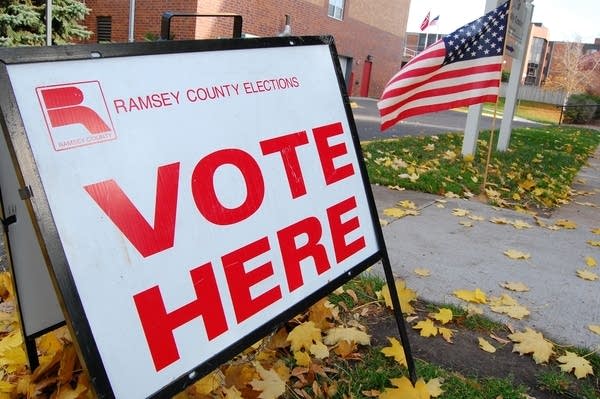Is a runoff election a better way?
Go Deeper.
Create an account or log in to save stories.
Like this?
Thanks for liking this story! We have added it to a list of your favorite stories.

DFLers and Republicans can't agree on who won this year's U.S. Senate race, or even whether the recount of the election went well.
But it turns out some of them agree that there might be a better way to sort out very, very close elections. A prominent Senate Democrat and a key House Republican said today they both think there should be a do-over, instead of a recount, in close elections.
Sen. Ann Rest, DFL-New Hope, head of the Senate's government operations committe, said she plans to offer a bill that would trigger a runoff election if elections were close -- within a half percent, for instance.
"It would be $3 million or $4 million, as opposed to a $250,000, which is the cost of the current recount. But I think voters would believe that is a worthwhile expenditure to have a clear result in an extraordinary circumstance," said Rest during an appearance on Minnesota Public Radio News' Midday program today.
Turn Up Your Support
MPR News helps you turn down the noise and build shared understanding. Turn up your support for this public resource and keep trusted journalism accessible to all.
"I think voters would believe that is a worthwhile expenditure to have a clear result in an extraordinary circumstance."
Rep. Laura Brod, R-New Prague, said on the program that members of her caucus were thinking along similar lines following the close Senate race between Republican Norm Coleman and DFLer Al Franken.
After trailing by several hundred votes the day after the election, Al Franken leads by 225 votes following a recount approved by the State Canvassing Board earlier this week.
Like many Republicans, Brod said she has questions about how the recount proceeded, and said that the race highlighted the need to come up with some other procedure.
"The voters are the ones that are looking at it, saying it's a confusing process, I don't understand why these votes were counted and these votes were not. I don't understand how a recount total can be used in one place and not in another," said Brod. "I think a runoff vote -- not an instant runoff vote, but a runoff vote -- would create clarity. I think it would lessen confusion in the system, and I think its something we should very closely look at."
Minnesota would join a handful of states across the nation that already have runoff elections. The most recent was in Georgia, where incumbent Republican Sen. Saxby Chambliss defeated Democratic challenger Jim Martin in a runoff that followed the November election.
Georgia requires senators to get more than 50 percent of the vote to avoid a runoff. Other states have primary runoffs and call for the elections under different circumstances, but several have also repealed runoff elections.
Kentucky ended runoff elections in April. Les Fugate, deputy secretary of state there, said that while Kentucky never actually had a runoff, most people were relieved when the law was stricken.
"There's a great cost to conducting an election that quickly after you conducted one election. That's your first problem," said Fugate. "The second is, to try and turn everything around that quickly is very difficult. But most importantly, you have so many fewer people voting in a runoff election as opposed to the actual election, that most people believe it's not worth having the actual election."
In Minnesota, Secretary of State Mark Ritchie says he's not so sure it would work.
"There needs to be some caution in saying that there wouldn't be a recount, because you need to know what is the actual number to see if you should trigger the automatic runoff election that's being proposed," said Ritchie.
The very existence of a runoff could require a lengthy recount anyway, and a runoff might even require a second recount if that were close, too. Ritchie said there will be challenges and questions regardless of how close elections are decided.
Both Rep. Brod and Sen. Rest said they plan to offer a proposal later in the session, and that they expect a variety of changes to election law will come forward in response to the close U.S. Senate race in Minnesota this year.
Dear reader,
Your voice matters. And we want to hear it.
Will you help shape the future of Minnesota Public Radio by taking our short Listener Survey?
It only takes a few minutes, and your input helps us serve you better—whether it’s news, culture, or the conversations that matter most to Minnesotans.




